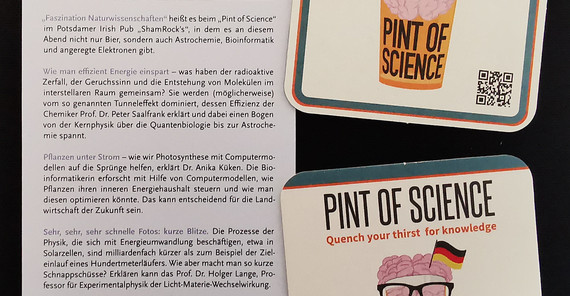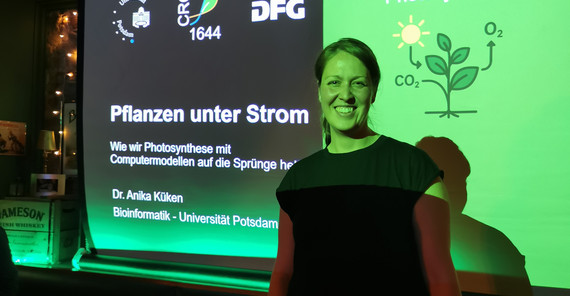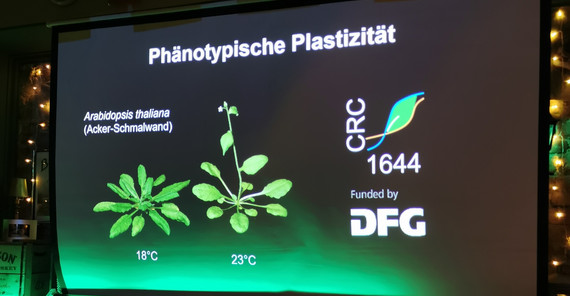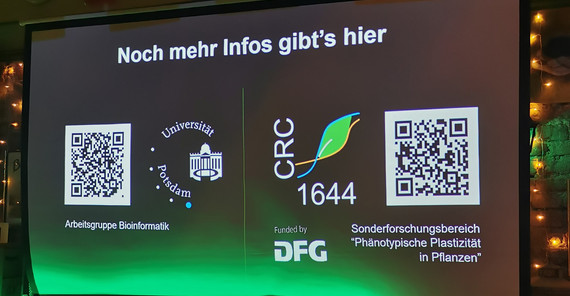On the third evening of the Pint of Science Festival in Potsdam, curious minds gathered at ShamRock’s pub to explore big scientific ideas in a relaxed setting.
Among the evening’s highlights was a compelling talk by Dr. Anika Küken, Junior Principal Investigator in our Collaborative Research Centre “Phenotypic Plasticity in Plants” at the University of Potsdam.
In her presentation, titled “Plants Under Power: Boosting Photosynthesis with Computer Models,” Anika Küken explored the surprising inefficiency of photosynthesis — the process that fuels nearly all life on Earth. Her group uses advanced computational models to investigate how plants regulate their internal energy systems, aiming to understand and ultimately optimize these complex metabolic networks.
Her research, embedded in the CRC’s broader mission, sheds light on the plasticity of photosynthetic metabolism in response to nitrogen availability and light intensity. By developing a large-scale kinetic model to understand the genetic basis of plant adaptation to changing environments, her work points toward future strategies for more resilient and resource-efficient agriculture. The talk captivated a wide audience and emphasized the value of translating foundational plant science into real-world impact.
The evening also featured two engaging talks from fellow researchers at the University of Potsdam:
Prof. Dr. Peter Saalfrank introduced the audience to the quantum tunneling effect, connecting it to fields as diverse as nuclear physics, quantum biology, and astrochemistry.
Prof. Dr. Holger Lange demonstrated how ultrashort light pulses allow scientists to capture even the fastest processes in physics — from solar energy conversion to atomic-scale motion.
With a lively crowd, excellent questions, and vibrant discussions continuing long after the talks ended, the event was a reminder that scientific dialogue doesn’t belong only in the lab — it thrives in the heart of the community, over a pint and among curious minds.




